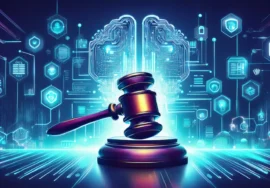
Divorce Law: Navigating Separation with Rights and Responsibilities
Marriage is considered a sacred bond, but when it no longer serves the well-being of the couple, separation sometimes becomes the only way forward. Divorce law provides a structured legal process for dissolving a marriage while ensuring fairness, dignity, and justice for both parties. It balances personal freedom with legal responsibilities, safeguarding the rights of spouses and children involved.
What is Divorce Law?
Divorce law is the branch of family law that governs the legal termination of a marriage. It sets out the grounds on which a divorce can be granted, the procedure to be followed, and the rights and obligations of each spouse after separation.
Grounds for Divorce
The specific grounds may vary depending on jurisdiction, but commonly include:
-
Mutual Consent – When both parties agree to end the marriage.
-
Cruelty – Mental or physical cruelty making it impossible to continue living together.
-
Adultery – When one spouse engages in extramarital relations.
-
Desertion – Abandonment by one spouse for a defined period.
-
Conversion or Religion Change – When one spouse converts to another religion without the consent of the other.
-
Mental Disorder or Illness – In cases where one spouse suffers from conditions that make married life untenable.
Key Aspects Covered Under Divorce Law
-
Division of Property: Ensures fair distribution of marital assets.
-
Maintenance and Alimony: Provides financial support to the dependent spouse.
-
Child Custody and Guardianship: Prioritizes the welfare of children while deciding custody, visitation rights, and support.
-
Women’s Rights: Offers special protection to ensure that women are not left financially or socially vulnerable after separation.
Why Divorce Law is Important
-
Protects Individual Freedom: Ensures the right to exit an unhappy or harmful marriage.
-
Maintains Fairness: Balances responsibilities between spouses during and after separation.
-
Protects Children: Prioritizes the best interests of minors in custody and support matters.
-
Promotes Social Justice: Prevents exploitation and upholds dignity in sensitive family matters.
Challenges in Divorce Law
Despite its significance, divorce law faces challenges such as lengthy legal proceedings, emotional trauma, financial burden, and societal stigma. Many individuals, especially women, find it difficult to access justice due to lack of awareness or financial independence. There is a growing need for reforms that ensure speedy, fair, and sensitive handling of divorce cases.
Conclusion
Divorce law is not about breaking families—it is about providing individuals with a dignified legal path when a marriage cannot survive. By safeguarding rights, ensuring responsibilities, and prioritizing fairness, divorce law helps individuals rebuild their lives while protecting the well-being of children and society.








